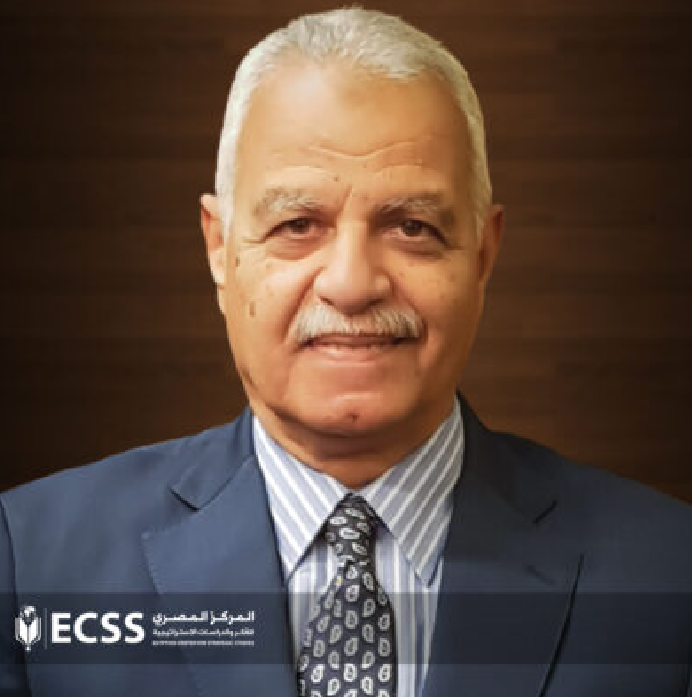I will continue to be appreciative, grateful, and even biased toward Egypt’s position on the Palestinian cause. Egypt has been a staunch supporter of the Palestinian cause for decades. I will also continue to reiterate that Egypt will not rest until an independent Palestinian state is established within the 1967 borders, with East Jerusalem as its capital, through negotiations between the Palestinian and Israeli parties.
There are two main stances I need to mention here, both of which are related to Egypt’s actions over the past few days. The first is the 30 January meeting between Egyptian President Abdel Fattah Al-Sisi and American Secretary of State Antony Blinken in Cairo, during which Al-Sisi reaffirmed his support for ending the escalation and creating a Palestinian state. The second is the dispatch of General Intelligence Director Major General Abbas Kamel to Ramallah to deliver a message of support for the Palestinian Authority and the Palestinian cause to President Abu Mazen. These actions followed the recent escalation in hostilities between Israel and the Palestinians, particularly in Jenin and Jerusalem, which hinted at the potential for a flare-up.
The spiral of violence in the Palestinian territories will undoubtedly continue as long as the Palestinian people continue to lose hope for even the most basic of rights and for living in a sovereign country like the rest of the world. Additionally, the violent Israeli actions against the Palestinian people, such as arrests, killings, home demolitions, displacement, settlement building, and storming of Palestinian cities and the Al-Aqsa Mosque, will unavoidably push the situation even further into chaos.
We take a firm stand against the murder of civilians anywhere in the world. However, the Israeli leaders must consider, even once, what motivates Palestinians to engage in hostilities with Israel. They must also consider what would happen if Palestinians won their rights and the conflict’s root causes were resolved. I believe that if Israeli politicians apply logic and reason to their thinking, they will come to only one conclusion: the cycle of violence will end and the region will witness peaceful coexistence between two neighboring states that depend on one another.
And if we consider how to stop the escalation between the Israeli and Palestinian sides and discover that the United States and the entire international community are turning to Egypt to assist it in containing any tension, then this is a natural matter given Egypt’s capabilities, experiences, and relationships that enable it to effectively communicate with all parties and be successful in stopping the escalation. Just consider the five Israeli wars on the Gaza Strip between 2008 and 2022 and Egypt’s role in brokering a ceasefire between the two sides each time. Egypt played a key role in brokering the cease-fire that put an end to those wars. This is Egypt, and this is its regional and international standing.
Despite this novel and effective Egyptian effort to stem the escalation, I maintain that just pacification is not the end goal. Egypt’s conviction and policy is that pacification is a temporary measure that must pave the way for a just and long-lasting political solution in order to prevent the tragedies and effects of escalation from happening again. Here, it is worth noting that Egypt’s political leadership has wasted no opportunity to state unequivocally that the Palestinians’ rightful acquisition of their rights in accordance with the decisions of international legitimacy is essential to regional stability and security.
Egypt will undoubtedly continue to be eager to act in order to prevent any escalation, but it will be even more eager that this action serve as a springboard for a political process that advances the interests and security of all parties.
I really hope that the Egyptian stance wins out with the Israelis and the Americans.
How much I wish that this Egyptian position would prevail on the Israeli and American sides. However, two key points should be mentioned in this regard. First, the US is much more focused on stopping the escalation than it is on finding a political solution. It quietly opposes unilateral actions and reiterates its support for the two-state solution without taking any concrete action, and that is where it all ends. Second, stopping the escalation is Israel’s ultimate goal. This is a grave error and significant risk that will fuel the violence and even push things to an unanticipated worsening as long as there is no political horizon in sight.
The parameters of the current situation therefore confirm that all the elements that contributed to the explosion of the conflict between Israelis and Palestinians are still present, are obvious, and could at any time extend to the Gaza Strip. Possibly, an objective reading of the developments in the situation in the Palestinian territories must compel the parties to accelerate movement on two parallel tracks: maintaining pacification and preventing any escalation; and the political track, which, in my view, is the most important and difficult and in which the parties must engage, despite its complexities.
This is the tactical goal that must be met in the coming period, primarily through Egyptian efforts. Finally, Israel must understand that maintaining the occupation, widening the circle of normalization with the Arab and Islamic countries, or even confronting Iran will not bring about the peace and security it seeks. Only the creation of a Palestinian state will.
This op-ed was originally published in Al-Ahram newspaper on 2 February 2023.













